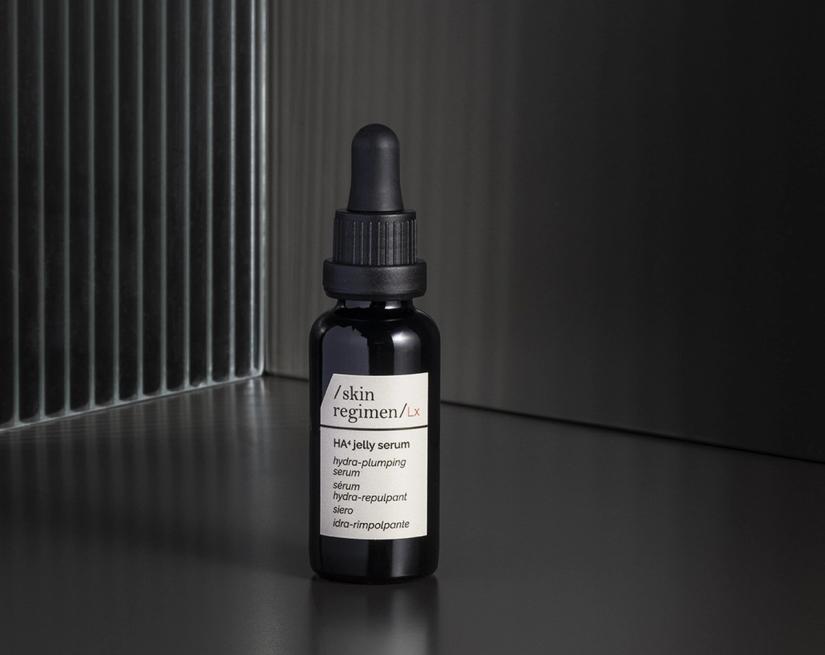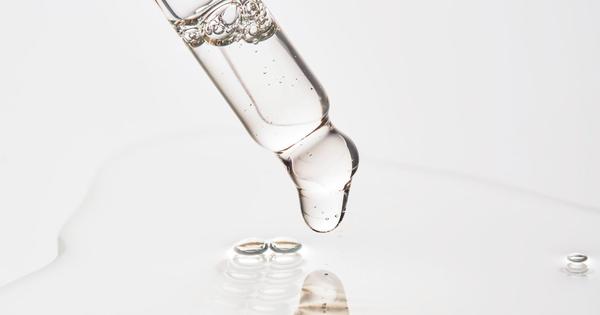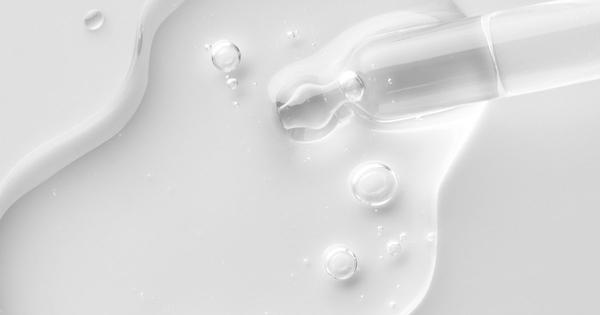Skin Regimen Lx Vitamin C Serum
Brightening serum
skin care
Eve Mérinville | Corporate RD Excellence & SC RD and Innovation Director
10 min read

Have you ever wondered if anti-aging skincare products really work? After all, there's no turning back the clock and erasing years of wrinkles, sun exposure, and dryness...is there?
One emerging ingredient found in many anti-aging skincare products is hyaluronic acid—it's on the ingredients list for dermal fillers, under eye moisturizers, and dozens of other beauty products. Best of all, it's worth the hype—hyaluronic acid is scientifically proven to reduce the appearance of wrinkles and provide powerful anti-aging benefits. How exactly does this key ingredient work, and should you add it to your skincare routine?
"It's important to remember that dehydrated skin is a skin condition, not a skin type! Lifestyle and environment may contribute to dehydration, so hyaluronic acid benefits everyone."
Elisabeth Nehme - Global Brand Ambassador Comfort Zone
Hyaluronic acid (sometimes abbreviated as HA) may be plumping up the ingredient list of all your favorite products, but you actually already have it in your body—it's naturally found in your joints, eyes, and nerves, among other areas. Hyaluronic acid cushions and lubricates these areas, ensuring your body moves comfortably and easily. In fact, some people take hyaluronic acid supplements to reduce joint pain.
How does it do its job? Hyaluronic acid creates a cushioning effect by binding onto the water content in your cells. It can even draw water into cells from the air, which is where its incredible skincare benefit comes in. HA can actually carry over 1,000 times its weight in water!
Hyaluronic acid products boost skin hydration by maintaining the moisture levels in your skin. Because they stick to water molecules, they also make skin cells appear more plump and full, which can reduce the appearance of wrinkles.
Once you begin to delve into the world of hyaluronic acid for joint pain, skin moisture, and facial wrinkles, you might notice another, similar active ingredient pop up: sodium hyaluronate. Sodium hyaluronate is similar to but different from hyaluronic acid. To start, it's made from a salt rock that is dissolved into a solution of water and doesn't naturally occur in your body like hyaluronic acid does. However, it has many of the same moisture retention properties that hyaluronic acid does.
In fact, sodium hyaluronate is even more powerful than hyaluronic acid. That's because the size of its molecules is smaller than hyaluronic acid's. Because its molecular weight and size is smaller, it can more easily penetrate the skin barrier when used in skincare products, making it more effective.
Sodium hyaluronate is often labeled as hyaluronic acid in the ingredients list of products, but since both ingredients work skincare wonders, you don't really need to worry about which form of hyaluronic acid is in your serum, moisturizer, or filler.
The last thing you might notice when reading your chosen product's ingredient label is the HA concentration. Some products are labeled as containing 99% hyaluronic acid, which seems like it would be more effective than say, a 1% hyaluronic acid serum, right?
Actually, you'd be wrong there. To start, products labeled as containing more than 1–2% HA are misleading. What this label actually means is that this product is 99% a mixture of hyaluronic acid and water—but what percent of that mixture is actually HA is not provided.
In actuality, a low (think 1–2% content of hyaluronic acid) acid content is better for your skin. Most over-the-counter skincare products fall into this concentration level, but a board-certified dermatologist could prescribe a higher concentration for you, if necessary.

Determining if hyaluronic acid is the right ingredient to supplement your skincare routine with depends on what you want your skincare to do for you. HA has 4 major benefits that have made it so popular in recent years.
| It has an anti-aging effect | It adds natural moisture | |
| Hyaluronic acid can reduce the presence and depth of wrinkles, making it a powerful anti-aging ingredient. By binding to water in your skin's cells, HA makes cells appear fuller, which translates to plumper, youthful-looking skin. As you age, your skin naturally loses moisture and elasticity. Dryness and laxity exacerbate the appearance of wrinkles, so hyaluronic acid's moisturizing properties further support it as an anti-aging ingredient. | Unlike creamy moisturizers, hyaluronic acid doesn't sit on your skin and make it feel greasy or oily—it works its hydrating magic by pulling in moisture rather than slathering it on. For those who struggle with oily or combination skin, this makes hyaluronic acid a great skincare ingredient in moisturizers and lotions. |
| It's not irritating | It's safe for pregnant women | |
| If you have sensitive skin, you might shy away from using hyaluronic acid products because of the word "acid" in the name. While many acidic skincare ingredients can be dangerous for those with sensitive skin, hyaluronic acid isn't one of them. Allergic reactions to hyaluronic acid are rare, and topical products containing a concentration of hyaluronic acid are safe for even the most sensitive skin types. Hyaluronic acid may be best for mature or dehydrated skin, but it's safe and suitable for all skin types. | Pregnancy can be a treasured experience, but for many people with a dedicated skincare routine, it can wreak havoc on their skin. Not only do shifting hormones cause some pregnant people to break out or experience dryness, but many standard skincare ingredients, including salicylic acid, retinol, and benzoyl peroxide, are unsafe for use during pregnancy. Unlike those products, hyaluronic acid is perfectly safe for people to use while pregnant or breastfeeding. In fact, your body's natural stores of HA increase during pregnancy anyways to loosen and lubricate your joints to prepare for childbirth. If you're concerned about using hyaluronic acid during pregnancy or any other skincare product, its a good idea to share your skincare regimen with your healthcare provider. |
Most people add hyaluronic acid to their skincare routine topically, but ingestible hyaluronic acid can be prescribed by a dermatologist, and it's also available as a dermal filler for people looking for added plumpness in their lips or cheeks. Hyaluronic acid can also be used in office treatments like facials for increased efficacy.
From peanut butter and jelly to cookies and milk, some things just go better together. Pair hyaluronic acid with vitamin C or retinol products to get maximum benefit from this hero ingredient.
Layering hyaluronic acid with a /skin regimen/Lx Vitaminc C Serum adds another layer to anti-aging products while negating the negative effects of vitamin C. Because hyaluronic acid naturally hydrates, it counters vitamin C's tendency to cause dryness and irritation for some people. Additionally, Vitamin C is the perfect complement to hyaluronic acid products because it provides a different, yet equally important anti-aging benefit—sun damage reversal. Together, vitamin C and hyaluronic acid boost skin radiance, firmness, and moisture.
Pairing hyaluronic acid with a /skin regimen/Lx Retinol Serum can more dramatically improve the appearance of wrinkles, because retinol boosts your body's natural collagen production. Like hyaluronic acid, collagen plumps cells and reduces wrinkles. Like vitamin C, retinol products can cause dryness, which makes it a great addition to a skincare routine already supplemented with hyaluronic acid.
Crafting your perfect skincare routine doesn't have to be complicated. Simply select skincare products with ingredients that will help you meet your skincare goals, like added radiance, moisture, or plumpness.
Whatever your skincare goals are, Comfort Zone has clean, powerful, vegan products formulated to make you look—and feel!—your best. With skincare products suitable for every skin type and every age, Comfort Zone is the perfect partner alongside your skincare journey.

Brightening serum
Hydrating glow cream
Illuminating correcting cream
Hydra-plumping serum
Anti-wrinkle serum